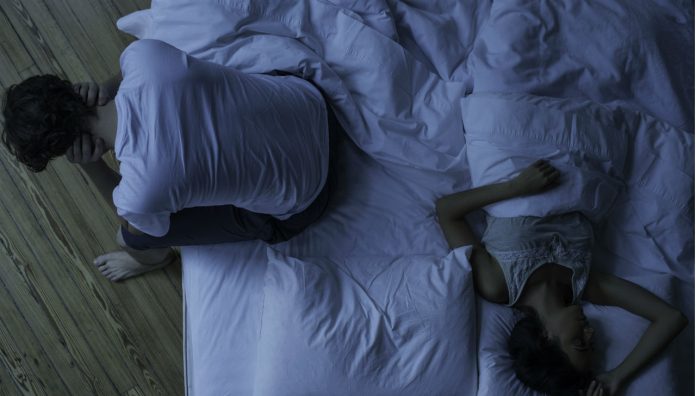The recently released government inquiry into sleep health identified the extent of the nation’s sleep deficit and its impact on health, risk of accidents and productivity in the workplace.
The inquiry, which drew from public hearings with healthcare professionals and other stakeholders, as well as a wide range of studies on sleep health, noted that almost four in 10 Australians do not regularly get enough sleep. It was estimated that inadequate sleep and its consequences resulted in 3,017 deaths in Australia in 2016–17. Almost 10% of deaths were attributable to motor vehicle accidents.1
The health impacts of inadequate sleep are significant. Disrupted sleep has been associated with an increased risk of developing obesity, diabetes, cardiovascular disease and dementia, and the prevalence of some cancers may be increased. Untreated sleep disorders such as obstructive sleep apnea (OSA) appear to increase high blood pressure, heart disease, and stroke.
To address these concerns, the report produced a series of recommendations which aim to increase sleep health awareness among patients, and further equip healthcare practitioners to improve sleep quality and treat sleep disorders effectively. Recommendations include government prioritisation of sleep health as a national priority, updated guidelines on shift work, sleep health promotion initiatives, funding for research, a review of the Medicare Benefits Schedule (MBS) as it relates to sleep studies and services, and increased education for healthcare professionals.1
Sleep benefits everyone
The inquiry suggested high levels of inadequate sleep amongst Australians was likely due to a range of lifestyle factors, including high stress levels and increased technology usage. The Sleep Health Foundation (SHF) identified a damaging culture of short sleep as a ‘badge of honour’, and called for efforts to create a cultural shift.1
Several environmental factors were also identified as common barriers to sleep health, including bedrooms that were too hot or cold, exposure to blue light through technology screens, street lights and noise.
Dr Bandana Saini, Associate Professor in Pharmacy Practice at the University of Sydney, said that pharmacists can play a key role in improving sleep health amongst their customers – if they are able to identify the signs.1
‘People won’t come into the pharmacy and say they have a sleep problem. They might be coming in looking for vitamins or some caffeine tablets, or something along those lines. From there, pharmacists can initiate a conversation about sleep health and changing sleep habits,’ she told Australian Pharmacist.
Dr Saini, who was involved with the inquiry, said pharmacists are particularly well suited to improving their customer’s sleep health, given their position as first-line healthcare providers, and their accessibility to patients.
‘Pharmacists are well trained to help people change behaviours. So that’s one key role that we could play,’ she said.1
Access to treatment
The inquiry also found that pharmacists could streamline diagnosis and treatment processes for people suffering from sleep disorders, such as insomnia, OSA and narcolepsy, who often experience significant delays in diagnosis.1
Some simple diagnostic sleep studies (level 3 and 4) could be conducted by pharmacists in patients’ homes by measuring a limited number of parameters. However these simple tests currently do not attract Medicare rebates.
Patients who believe they might be suffering from a sleep disorder are often required to participate in an overnight sleep study in a specialised sleep clinic or hospital. Due to the limited number of practising sleep specialists, this process may involve lengthy waiting periods, especially for paediatric care and for people living in rural areas. As a result, diagnosis and treatment can be delayed.1
The inquiry called for a review of the MBS as it relates to sleep care in Australia, recommending that the review include simple diagnostic sleep studies (level 3 and 4).
PSA supported this move, telling the inquiry that home-based studies are an ‘an excellent way – appropriate to the scope of practice – for pharmacists to be able to pick up on people who can be managed or need to be referred on to more specialist assessment.’
A medication problem
The inquiry also revealed a concerning reliance on medicine to treat sleep disorders, particularly insomnia. While most insomnia cases can be dramatically improved with psychological counselling, the inquiry noted that 90% of patients are prescribed sleeping medicines, such as benzodiazepines, by their GP.1
Noting the addictive qualities of benzodiazepines, as well as the increased risk of motor vehicle accidents, falls, accidental overdose, and the development of dementia and Alzheimer’s disease associated with taking the drug, the inquiry called for a larger-scale inquiry into cognitive behavioural therapy for insomnia.
Meanwhile, Dr Saini advised pharmacists to be aware of the side effects of sleep medicines so they can educate consumers, particularly those most at risk, such as the elderly or people with a history of addiction. However, she noted that most consumers who are prescribed sedatives would benefit from further discussions with healthcare professionals.1
‘I think that at some stage, a discussion should be had with everyone who uses a sedative about limiting the use of that medicine. Some people will need it, there’s no getting around that, but it should only be used when needed, and it should be supported with appropriate behavioural techniques,’ she said.
Dr Saini said that various risk minimisation strategies can be discussed with consumers, including returning to their GP and creating a plan to reduce their sedative intake.1
Read the full report here.
References
- Department of Health, Aged Care and Sport Bedtime Reading: Inquiry into Sleep Health Awareness in Australia. Available from: https://www.aph.gov.au/Parliamentary_Business/Committees/House/Health_Aged_Care_and_Sport/SleepHealthAwareness/Report



 John Jones MPS, pharmacist immuniser and owner of My Community Pharmacy Shortland in Newcastle, NSW[/caption]
John Jones MPS, pharmacist immuniser and owner of My Community Pharmacy Shortland in Newcastle, NSW[/caption]


 Debbie Rigby FPS explaining how to correctly use different inhaler devices[/caption]
Debbie Rigby FPS explaining how to correctly use different inhaler devices[/caption]




 Professor Sepehr Shakib[/caption]
Professor Sepehr Shakib[/caption]

 Lee McLennan MPS[/caption]
Lee McLennan MPS[/caption]
 Dr Natalie Soulsby FPS, Adv Prac Pharm[/caption]
Dr Natalie Soulsby FPS, Adv Prac Pharm[/caption]
 Joanne Gross MPS[/caption]
Joanne Gross MPS[/caption]





